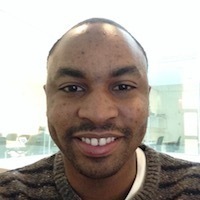Menu
- Undergraduate
- Graduate
- Research
- Community
- News & Events
- People
Back to Top Nav
Back to Top Nav
Back to Top Nav
Back to Top Nav
Please join us for a talk given by Jamal Williams, a graduate student in Dr. Ken Norman's lab at Princeton University.

Neural mechanisms underlying event cognition and episodic memory for real-world music
The push towards using more ecologically-valid stimuli in neuroscience has grown as researchers seek to better understand how the brain functions under more naturalistic conditions. Although many recent studies have begun to reveal how the brain processes real-world stimuli such as film and narratives more generally, fewer studies have demonstrated how the brain processes real-world music. Like narratives, music is structured hierarchically such that information is represented at different timescales. Music also strongly engages episodic memory and serves as a powerful memory cue for related information. In our research, we seek to extend recent findings on event cognition and episodic memory for narratives to music. Specifically, I will highlight research where we show how areas of the default mode network, as well as sensory cortex, chunk musical events into meaningful units. Next, I will present preliminary findings from an ongoing study in which we explore the effect of recurrent musical structure in a film score on memory formation and retrieval for information in a film. In this paradigm, we present a feature-length film to two groups of participants undergoing fMRI; one group that watches the film with the film score intact and another group that watches the film without the film score. We then have both groups of participants return to the fMRI scanner the next day to recall the entire movie as well as respond to survey questions related to the film. Initial results suggest that participants are differentially affected by the absence or presence of the film score at both the behavioral and neural level. Finally, I will draw connections between these lines of work to demonstrate the effectiveness of using music as a tool for understanding the neural mechanisms underlying event cognition and episodic memory.
Events are free and open to the public unless otherwise noted.